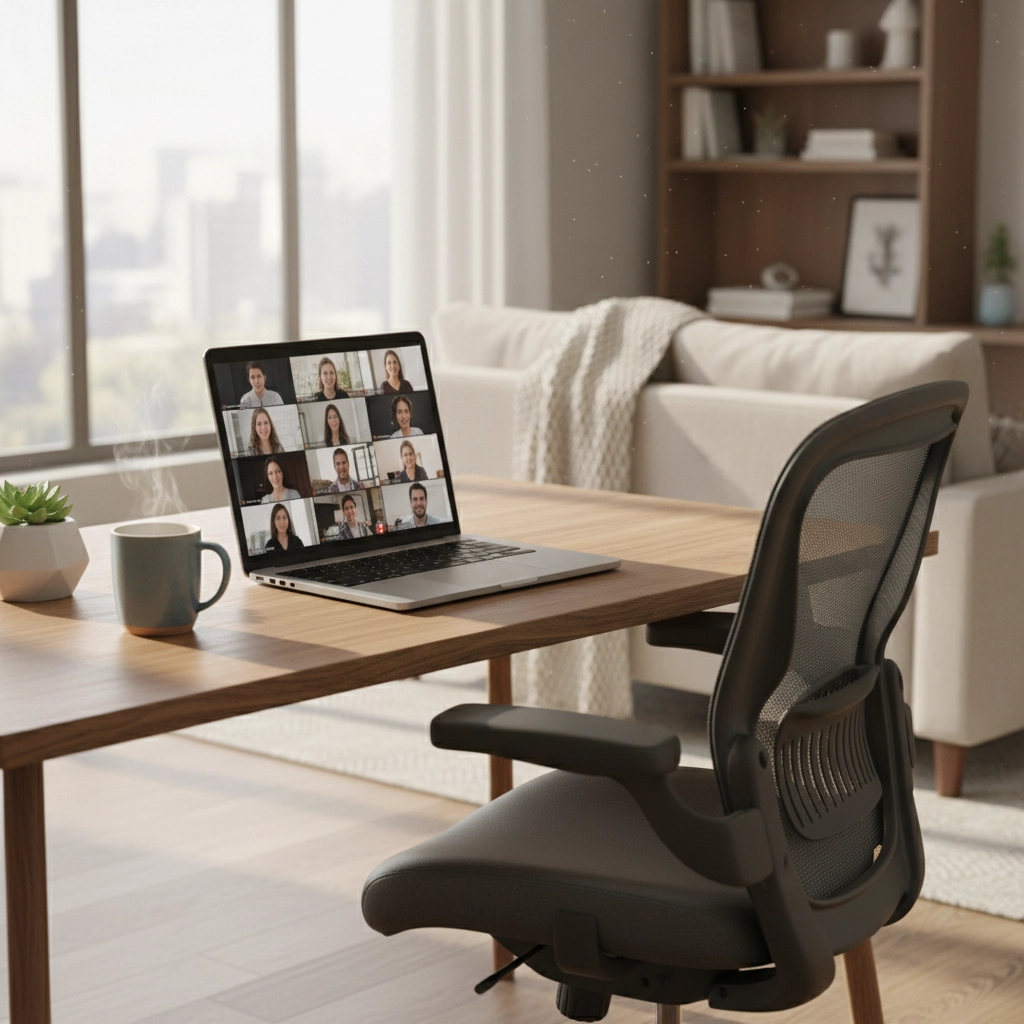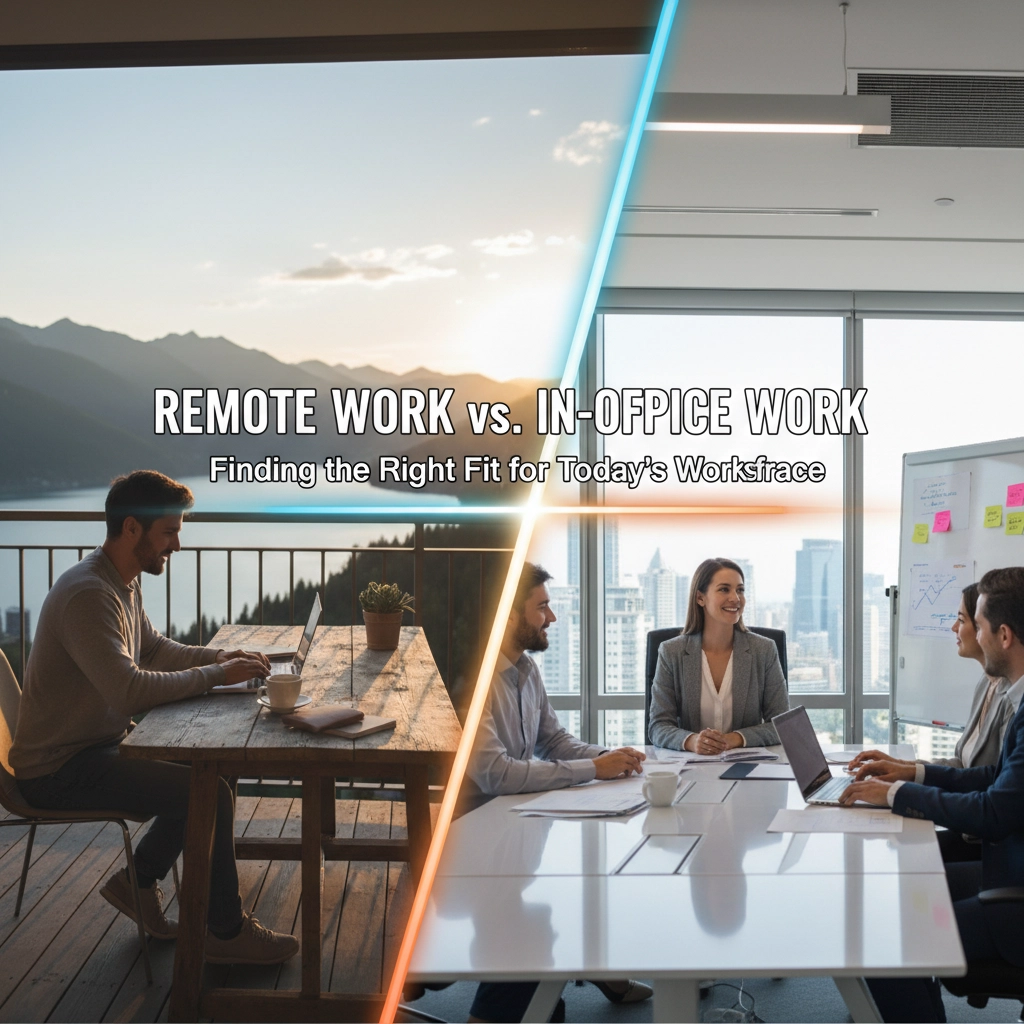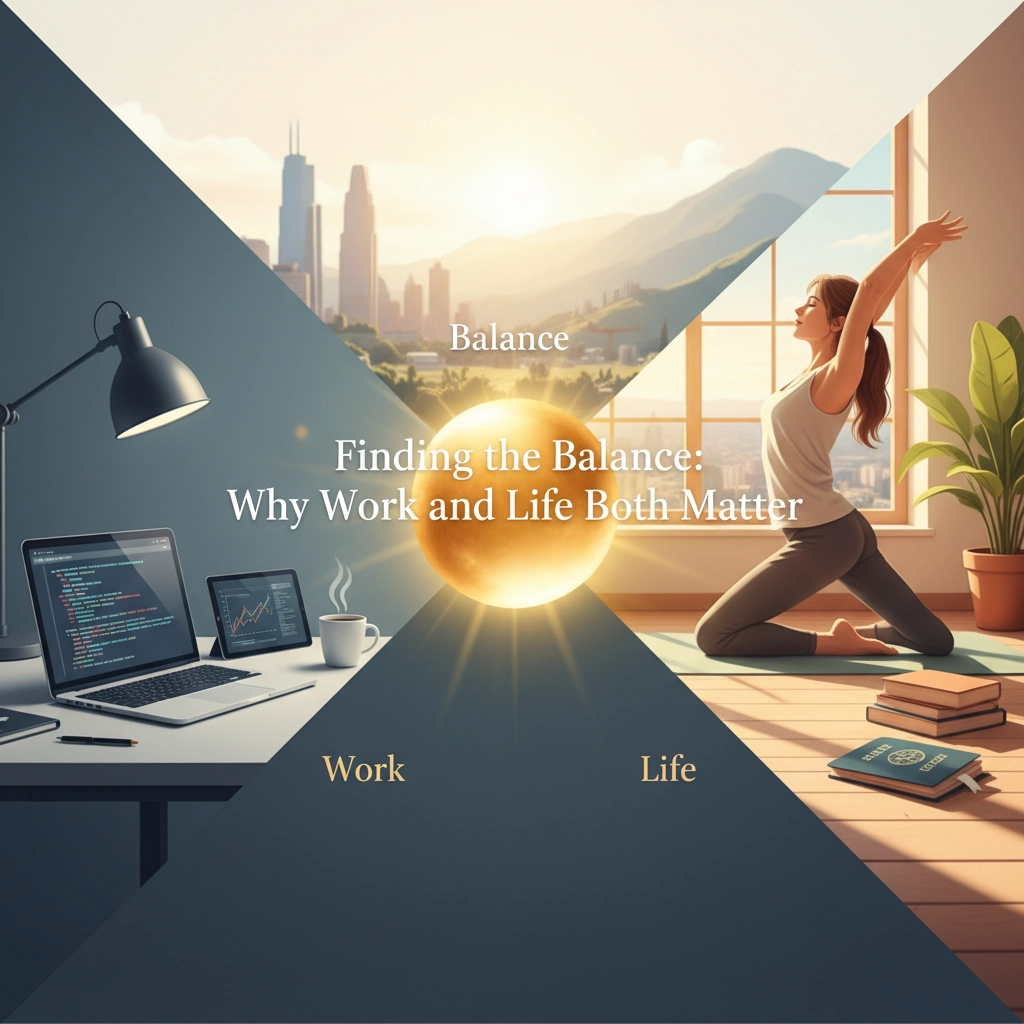Remote Work vs. In-Office Work: Finding the Right Fit for Today's Workforce
- Randyb Dinwiddie
- 5 hours ago
- 6 min read
The way we work has completely changed over the past few years, and honestly, it's been pretty exciting to watch. At Dependable Brokers, we've seen firsthand how different work arrangements can make or break a team's success. Whether you're running an advertising agency, managing client accounts, or building creative campaigns, the question isn't just where you work anymore – it's about finding the setup that brings out everyone's best performance.
Let's be real: there's no magic formula that works for every business. But after years of helping companies navigate these changes, we've learned a thing or two about what actually works in the real world.
The Remote Revolution: Freedom That Actually Works
Remote work isn't just a trend anymore – it's become a legitimate way to build successful teams. And for good reason.
The Wins Are Pretty Impressive
When remote work clicks, it really clicks. Your team members can structure their days around when they're most productive. Some people are morning powerhouses, others hit their stride after lunch. Remote work lets everyone lean into their natural rhythms instead of forcing a one-size-fits-all schedule.
The time savings alone are game-changing. No more sitting in traffic or rushing through morning routines. That's time people can spend on actual work, family, or just getting their heads in the right space before diving into the day.
From a business perspective, remote work opens up your talent pool in ways that weren't possible before. Instead of limiting yourself to whoever lives within commuting distance, you can find the absolute best people for your team – whether they're across town or across the country.
And let's talk numbers: companies consistently see cost savings on office space, utilities, and all those daily overhead expenses. Your team saves money too – no gas, parking fees, or expensive downtown lunches.

But It's Not All Smooth Sailing
Remote work does come with real challenges that you can't just ignore and hope they'll work themselves out.
Collaboration can get tricky when everything happens through screens. Those quick hallway conversations that used to solve problems in two minutes? Now they require scheduling a call, and sometimes the moment passes. Brainstorming sessions can feel forced, and it's harder to read the room when "the room" is a collection of video squares.
Communication becomes more intentional – which sounds good in theory but can slow things down in practice. Without casual face-to-face check-ins, small issues can snowball before anyone realizes there's a problem.
Company culture is another big one. It takes real effort to help remote team members feel connected to your mission and values. Some people thrive with that independence, while others start feeling isolated or disconnected from the bigger picture.
In-Office Work: The Power of Being Together
Traditional office work might seem old-fashioned, but there's something to be said for having everyone in the same space.
Where Offices Really Shine
In-person collaboration is still unmatched for certain types of work. When you're developing advertising campaigns, working through complex client challenges, or training new team members, being in the same room makes everything flow better. Ideas build on each other more naturally, and you can solve problems in real-time instead of going back and forth over messages.
Company culture happens almost automatically when people share space. New hires pick up on how things work just by watching and listening. Mentorship feels more natural. Team bonds develop through shared experiences – even simple things like grabbing coffee together or celebrating wins in person.
There's also something to be said for the clear boundaries office work creates. When you leave the office, you're done for the day. That separation can be mentally healthy for people who struggle with work-life balance in remote settings.
The Downsides Are Real Too
Office work comes with limitations that can't be ignored in today's competitive job market. The biggest one is simply that many talented people won't consider jobs that don't offer flexibility. You're automatically limiting your talent pool to people who can and want to commute to your location every day.
Overhead costs are significant – rent, utilities, office supplies, and maintenance add up quickly. And for team members, commuting time and costs can be substantial, especially in major metropolitan areas.
Hybrid Work: Getting the Best of Both Worlds
This is where things get interesting. Hybrid arrangements let you capture the advantages of both remote and office work while minimizing the downsides.
Why Hybrid Often Works Best
At Dependable Brokers, we've found that hybrid models give us incredible flexibility in how we approach different types of work. Complex strategy sessions and client presentations happen in person where we can feed off each other's energy and read the room properly. But when someone needs to focus on detailed campaign analysis or creative development, they can work from home where distractions are minimal.
The key is being intentional about when and why people come together. Instead of arbitrary "everyone in the office three days a week" policies, successful hybrid approaches match work style to work location.
Making Hybrid Actually Work
The trick with hybrid is avoiding the trap where some people are consistently more visible than others. You need clear systems to ensure remote days don't mean second-class participation in meetings or decision-making.
Communication becomes crucial – everyone needs to know when in-person days are happening and why. And you need technology that makes hybrid meetings actually functional instead of frustrating.

What Actually Matters in Today's Market
Here's what we've learned from working with businesses across different industries: employee preferences have shifted dramatically, and companies that don't adapt are losing out on talent.
Recent data shows that over half of today's workforce prefers hybrid arrangements, with another 25% wanting fully remote options. Only about one in five workers still prefers traditional office-based work. More telling, many people simply won't consider jobs that don't offer some form of flexibility.
This isn't just about employee comfort – it's about business competitiveness. Companies that embrace flexible work models are accessing broader talent pools and often seeing higher productivity and retention rates.
Finding Your Sweet Spot
The right work model for your business depends on several key factors.
Know Your Team's Real Preferences
Don't assume you know what your people want. Ask them directly, and be prepared for diverse answers. Some will prioritize flexibility above everything else, while others perform better with structure and in-person interaction.
Match Work Style to Work Location
Different types of work truly do perform better in different settings. Client-facing roles, collaborative projects, and training often benefit from in-person interaction. Deep focus work, analysis, and individual tasks often thrive in remote environments.
Consider Your Industry Context
In advertising and marketing, creativity often sparks from unexpected conversations and collaborative energy. But campaign execution and client research can be incredibly effective in quiet, focused environments. The best approach usually involves both.

The Dependable Brokers Approach
We've found success with a flexible hybrid model that prioritizes results over location. Our team comes together for client strategy sessions, campaign launches, and training – times when being in the same room genuinely adds value. But for detailed work like campaign analysis, content creation, and client research, people work wherever they're most effective.
The key is clear communication about expectations and consistent check-ins to ensure everyone stays aligned with client needs and company goals.
What Really Drives Success
After working with teams in all different arrangements, one thing has become crystal clear: success isn't about where someone sits. It's about consistency, discipline, and communication.
The best remote workers show up every day with clear priorities and strong communication habits. The best office workers bring energy and collaboration skills that elevate everyone around them. And the best hybrid workers know how to maximize the advantages of both environments.
Building Strong Teams Anywhere
Whether your team works from home, in the office, or somewhere in between, the fundamentals remain the same:
Clear expectations and consistent accountability matter more than location. Regular check-ins and open communication prevent small issues from becoming big problems. And creating genuine connections between team members – whether virtual or in-person – builds the trust that makes everything else possible.
At Dependable Brokers, we've seen teams excel in every type of work arrangement. The difference isn't the model itself – it's how intentionally you implement it and how well you adapt it to your specific team's needs.
The future of work isn't remote versus office. It's about creating systems that bring out the best in your people, serve your clients effectively, and position your business for long-term success. And honestly, that's pretty exciting territory to explore.
Written by Sarah Mitchell, contributing writer for Dependable Brokers










































Comments